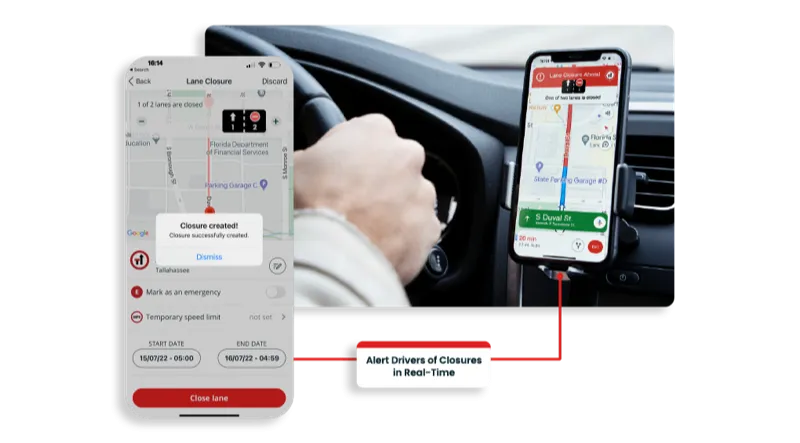The pilot is partly funded by THEA and the U.S. Department of Transportation. It involves installing radios and computers in over 1,600 vehicles including private cars, buses, and streetcars and in over 40 fixed locations at downtown intersections to enable ultra-fast vehicle-to-vehicle (V2V) and V2I communication. In addition, over 500 area residents will be supplied with cell-phone applications to alert equipped nearby vehicles when pedestrians are crossing a street.
During the design phase, THEA’s project engineers worked with the University of Arizona who learned that signal control optimization can reach its full potential only when over 90% of the vehicles approaching the intersection have known location and speeds. The number of vehicles instrumented for V2I communication as part of the pilot would provide a far smaller percentage of vehicle coverage. A method of obtaining information on all vehicles approaching the instrumented intersections was needed.
After considering several technologies, FDOT paid for the procurement and installation of the detectors along Florida Avenue and Nebraska Avenue which is also part of the upcoming Managed Lanes Tampa Bay Express project. HNTB will provide the design to integrate them with the rest of the connected vehicle pilot operation under its existing general engineering contract. THEA will supply 10 Bluetooth detectors to determine travel time between points on these streets and along Meridian Avenue. These technologies will not identify or retain any information about individual drivers or vehicles.
FDOT coordinates with THEA on TAMPA connected vehicle pilot
Florida Department of Transportation (FDOT) District 7 will provide over 40 video traffic detectors at 12 intersections to allow improved traffic signals to operate at Tampa’s Connected Vehicle Pilot. The project, launched by the Tampa-Hillsborough Expressway Authority (THEA), plans to use vehicle-to-infrastructure (V2I) communication to reduce travel times and make traffic flow smoother and safer in the region’s commercial business district (CBD).
December 13, 2017
Read time: 2 mins









